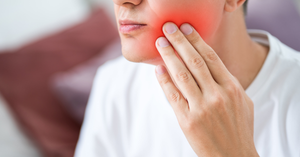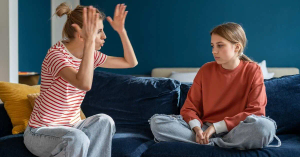Social media platforms like Instagram have become an integral part of many teenagers' lives, serving as a space for self-expression, social connection, and entertainment. However, with its highly visual nature and emphasis on appearance, Instagram has also become a hub for beauty standards that may be difficult—if not impossible—for many teens to achieve. The pressure to look perfect, combined with the endless comparison to influencers and peers, can have profound effects on teenagers' self-esteem and mental health.
This article delves into the beauty stigma on Instagram, how it affects teenagers, and what parents can do to help their children navigate social media in a healthy way.
Understanding the Beauty Stigma on Instagram
The term "beauty stigma" refers to the unrealistic standards of beauty promoted on social media platforms like Instagram. Influencers, celebrities, and even peers post meticulously curated and edited images that reflect an idealized version of beauty—often enhanced by filters, lighting, or even cosmetic procedures. The constant exposure to these images can distort a teenager's perception of beauty, creating a harmful cycle of comparison and insecurity.
For many teens, Instagram feeds are flooded with images of people with flawless skin, perfect bodies, and fashionable outfits. This endless stream of "perfection" can make them feel that they, too, must look a certain way to be valued or accepted. This pressure can lead to negative thoughts about their own appearance and can deeply affect their confidence and sense of self-worth.
The Impact of Social Media on Teen Self-Esteem
Studies have consistently shown a link between social media use and lower self-esteem in teenagers. A report by the Royal Society for Public Health (RSPH) in the UK found that Instagram is the worst social media platform for mental health and well-being, particularly for teenagers. The platform's focus on images, coupled with the widespread use of filters and editing apps, can create unrealistic expectations of beauty that teenagers often struggle to meet.
Some of the ways Instagram impacts teen self-esteem include:
1. Comparison Culture
Instagram’s culture of comparison is perhaps the most damaging. Teens often find themselves comparing their own appearance to that of influencers or peers, which can lead to feelings of inadequacy. A study conducted by the University of Pittsburgh found that people who spent more time on social media had a greater likelihood of experiencing feelings of envy, which in turn negatively affected their self-esteem.
When teenagers constantly see pictures of "perfect" bodies, it can lead to the false belief that their own bodies are flawed or inadequate. This can contribute to body dissatisfaction, which is one of the leading causes of eating disorders, depression, and anxiety among young people.
2. Fear of Missing Out (FOMO)
The Fear of Missing Out (FOMO) is another byproduct of Instagram’s curated reality. When teens see their friends or influencers engaging in exciting activities, going to glamorous events, or looking their best in every post, it can cause feelings of exclusion or inadequacy. This constant need to stay connected and be part of the social scene can erode self-confidence, making teens feel like they don’t measure up.
3. Pressure to Achieve Perfection
Instagram creates an environment where perfection seems not only attainable but necessary. Teens may feel compelled to edit their photos, use beauty filters, or wear makeup to conform to these standards. The pressure to maintain a "perfect" online persona can lead to stress, anxiety, and a fear of being judged.
This pursuit of perfection can lead teenagers to feel like they’re never good enough, even in their day-to-day lives. It also encourages unhealthy behaviors such as extreme dieting, excessive exercise, or even cosmetic procedures at a young age to meet these unattainable ideals.
4. Body Image Issues
According to the National Eating Disorders Association (NEDA), social media is a significant factor contributing to body dissatisfaction among teens. A research study published in the Journal of Adolescent Health found that adolescent girls who spent more time on social media platforms like Instagram were more likely to engage in unhealthy weight control behaviors, such as fasting, skipping meals, or excessive exercising.
Teens, particularly girls, are susceptible to comparing their bodies with those seen on Instagram. The widespread use of filters and image-editing apps exacerbates this issue, as it creates unrealistic and unnatural body standards. Over time, this can lead to negative body image, low self-esteem, and even body dysmorphic disorder (BDD).
The Role of Influencers and Filters
Influencers, with their large followings and aspirational lifestyles, play a significant role in perpetuating beauty stigma. Many influencers post highly edited, filtered images that showcase their "perfect" appearance, which can be incredibly misleading. Teenagers who follow these influencers may assume that what they see is real, not realizing the extent of digital manipulation involved in creating those images.
Additionally, Instagram filters can subtly alter one’s appearance, creating smoother skin, a slimmer face, and other enhancements. While these filters may seem harmless at first, their frequent use can distort how teens perceive themselves. They may begin to feel that their natural appearance isn’t "good enough," leading to dissatisfaction with their real-life appearance.
A report by Psychological Medicine found that the more frequently teenagers used photo-editing apps, the more likely they were to experience body dissatisfaction and lower self-esteem. This highlights how the frequent exposure to altered images not only affects how teens view others but also how they view themselves.
How Parents Can Help
Parents play a crucial role in helping their children navigate social media in a way that promotes healthy self-esteem and body image. Here are some steps parents can take to support their teens:
1. Open Conversations About Social Media
Talking to your child about the impact of social media on self-esteem is essential. Help them understand that what they see on Instagram is often curated, edited, and not reflective of real life. Encourage open conversations about the pressures they may feel online and provide a safe space for them to express their concerns.
2. Promote Body Positivity
Teach your child to appreciate and celebrate their body for its strengths and capabilities, rather than focusing solely on appearance. Reinforce positive body image by praising them for their talents, intelligence, and kindness, rather than their looks. Encouraging activities that promote body positivity—such as sports, dance, or other hobbies—can also help build self-confidence.
3. Set Limits on Social Media Use
Moderating social media use can help reduce the negative effects of Instagram on your child’s self-esteem. Setting boundaries on screen time or encouraging them to take regular breaks from social media can create a healthier balance between their online and offline lives.
4. Follow Positive Influencers
Encourage your child to follow influencers who promote body positivity, diversity, and authenticity. Accounts that focus on health, wellness, and self-love rather than appearance can serve as a counterbalance to the beauty stigma prevalent on Instagram.
5. Model Healthy Social Media Behavior
As a parent, it’s important to model healthy social media behavior for your child. Be mindful of the content you engage with online and how you talk about your own body. Children often learn by observing their parents, so practicing positive self-talk and setting a healthy example can have a significant impact on your child’s relationship with social media.
Conclusion
The beauty stigma on Instagram can significantly impact a teenager's confidence and self-esteem, contributing to body dissatisfaction, anxiety, and depression. However, with awareness and proper guidance, parents can help their children navigate social media in a way that promotes positive body image and self-worth.
By fostering open communication, encouraging body positivity, and setting healthy limits on social media use, parents can help mitigate the harmful effects of Instagram’s beauty standards. In the end, it’s important for teens to understand that their value goes far beyond appearance and that true confidence comes from within.








